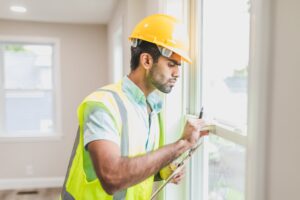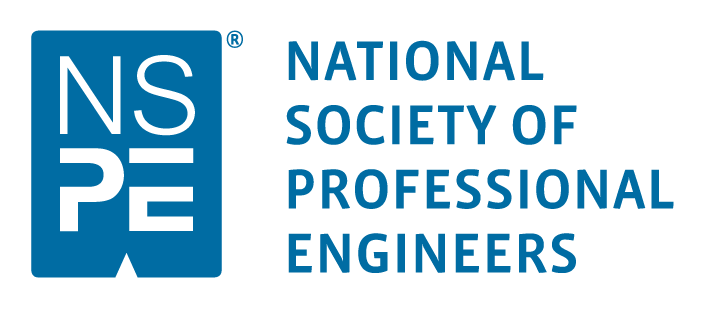Why Construction Monitoring Surpasses Relying Solely on Post-Build Inspections
It is often challenging to assess an asset’s quality when acquiring a newly transitioned or resale property in New Jersey. Stakeholders might find clues in NJ transition study reports or maintenance and repair records. But by this stage, they are essentially stuck with the construction quality delivered by the original builder.
Ideally, it is advisable to verify the construction quality of major projects within the construction period. While cost-saving measures are often a priority for associations, opting out of construction monitoring can lead to compromised structural integrity, costly rework, schedule delays, legal liabilities, and potential harm to building users.
Real-time assessment and correction of potential issues during the construction process can reduce costly and permanent mistakes. This proactive approach aligns the construction with building specifications and establishes confidence in the overall project quality.
What is Construction Monitoring?
Construction monitoring is a quality assurance procedure that verifies whether the contractor has carried out the work according to the design and intent of specifications. It is often done by engineers independent of the construction contractor.
In construction monitoring, an expert regularly visits the site to determine if the components of the building are constructed correctly and in accordance with the design drawings. This expert, often a NJ structural engineer, assesses if the builders are using the right materials, constructing them in accordance with the building code and manufacturer’s specifications, and following the designs accurately.
The structural engineer New Jersey also reviews the design to determine that the structure meets the standards set by relevant building codes. Their goal is to identify any problems early on so they can be fixed before they become expensive problems later.
Common Types of Defects During Construction
Without construction monitoring, building deficiencies might be detected in the later phase of the project or not at all.
Generally, construction defects are categorized into the following categories:
1. Design Defects
These refer to issues arising from inadequacies in the work of architects or engineers during the planning phase. Examples include flawed roof designs that can lead to water penetration, poor drainage, or insufficient structural support. Design deficiencies also happen when the building design ignores relevant building codes.
2. Material Defects
Employing substandard building materials can lead to issues, like windows prone to leakage or concrete that cracks when subjected to pressure. Examples of poor practices include using subpar asphalt roofing shingles and low-quality drywall for bathrooms and laundry rooms. Inferior products will not meet performance standards even with correct installation.
3. Construction Defects
Construction deficiencies result from poor quality workmanship. Construction defects fail to meet code requirements and may be deliberately concealed by a contractor. An example is improper plumbing work, which can cause leaks and encourage mold growth or damage electrical wires within a wall.
4. Subsurface Defects
New Jersey has various soil conditions. Buildings that are constructed on hills, in areas with shifting soil, or in locations where establishing a stable foundation proves challenging should be evaluated and addressed in the design of the foundation. Insufficient substructure support can lead to issues like cracked foundations and damage to the building.
In cases where subsurface conditions lack proper compaction and preparation, the building might face challenges such as improper settling, structural movement, or shifting.
Notably, deficiencies can remain undetected for a long time. It is better to avoid them in the first place than to face legal battles with contractors or undertake costly post-build repairs after a commercial building inspection NJ.
Is Construction Monitoring Optional?
Construction monitoring is highly recommended and often considered necessary rather than an optional feature. Smaller projects or minor renovations may proceed without dedicated construction monitoring. However, it is generally advisable to incorporate this quality control function in larger and more complex projects.
Here are reasons why construction monitoring is essential:
- Quality Assurance: Construction monitoring determines that materials, workmanship, and construction methods meet the required standards, reducing the likelihood of errors or subpar construction.
- Compliance and Safety: Monitoring maintains adherence to building codes, safety regulations, and design specifications. It minimizes potential hazards and establishes code compliance.
- Risk Mitigation: Having an independent professional during construction helps determine and address issues at a point when the building is still a work in progress. It prevents costly rework or structural deficiencies that could arise if problems remain unnoticed until post-build.
- Client Satisfaction: Monitoring contributes to delivering projects within specified timelines, budgets, and desired quality levels. This will ultimately satisfy the clients or end-users.
- Accountability: Engaging in construction monitoring demonstrates a commitment to professional responsibility and accountability in delivering safe and compliant structures.
What Happens in Construction Monitoring?
Depending on the project’s scale, construction monitoring activities may involve but are not limited to the following:
- Examining the contractor’s Inspection Test Plan and Quality Control Plan to deliver design requirements and maintain regulatory compliance.
- Reviewing design drawings, material selection, and manufacturer’s specifications.
- Site visits to determine that the contractor is adhering to the plans and specifications.
- Addressing technical queries and potential design deviations requested by the contractor.
- Observing construction methods to prevent a compromise to the design’s effectiveness.
- Oversight of high-risk construction activities.
- Independent testing or verification of materials used by the contractor.
- Reviewing constructed elements against design drawings, specifications, and calculations.
- Meetings and collaboration with the principal, contractor, or contract administrators regarding construction-related matters.
- Determining that the contractor is following their quality systems.
- Provision of accurate construction monitoring reports and correspondence.
- Providing design certifications, such as producer statements, to evaluate adherence to the design engineer’s intent.
Work With Qualified Engineers for Independent Construction Monitoring
While licensed contractors in New Jersey are required to obtain building permits and adhere to industry standards, several factors during construction may lead to compromises and deviations from the original design intent. These elements include time constraints, budget limitations, and unforeseen challenges. Supplementing contractor efforts with independent construction monitoring is necessary to bridge potential gaps and maintain quality construction.
Engaging a qualified structural engineer NJ for third-party construction monitoring protects the stakeholders’ interests. Their independent assessment helps identify potential issues early on, allowing for timely corrections and preventing costly mistakes. By acting as a neutral party, third-party engineers contribute to transparency and accountability, mitigating conflicts of interest that might arise among involved parties.
Partner With Lockatong Engineering for Construction Monitoring in New Jersey
Achieve code compliance and adherence to the design specifications of your construction projects through construction monitoring. Lockatong Engineering has a qualified team of experienced engineers who can provide comprehensive oversight on building projects so they follow the plan, comply with regulations, and maintain structural integrity.
Trust in our specialized knowledge and commitment to industry standards for a seamless and secure construction process. Fill out this form to consult with Lockatong Engineering today.








